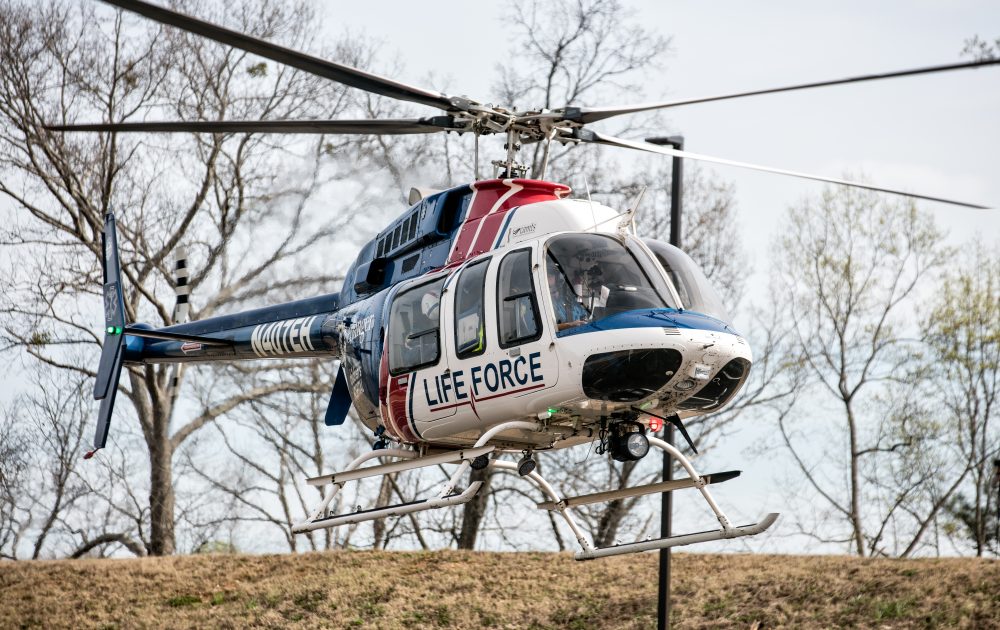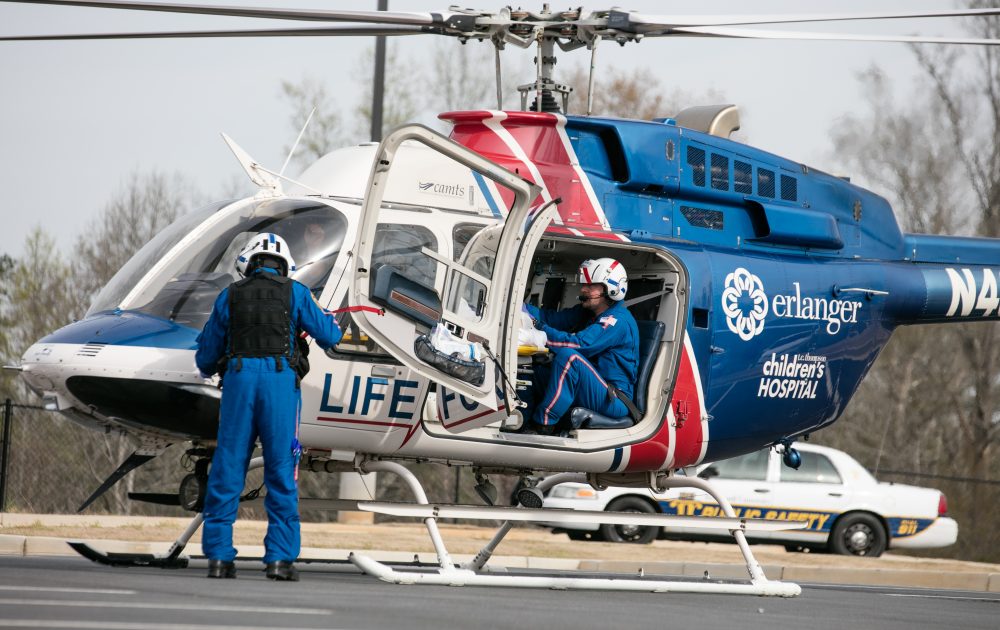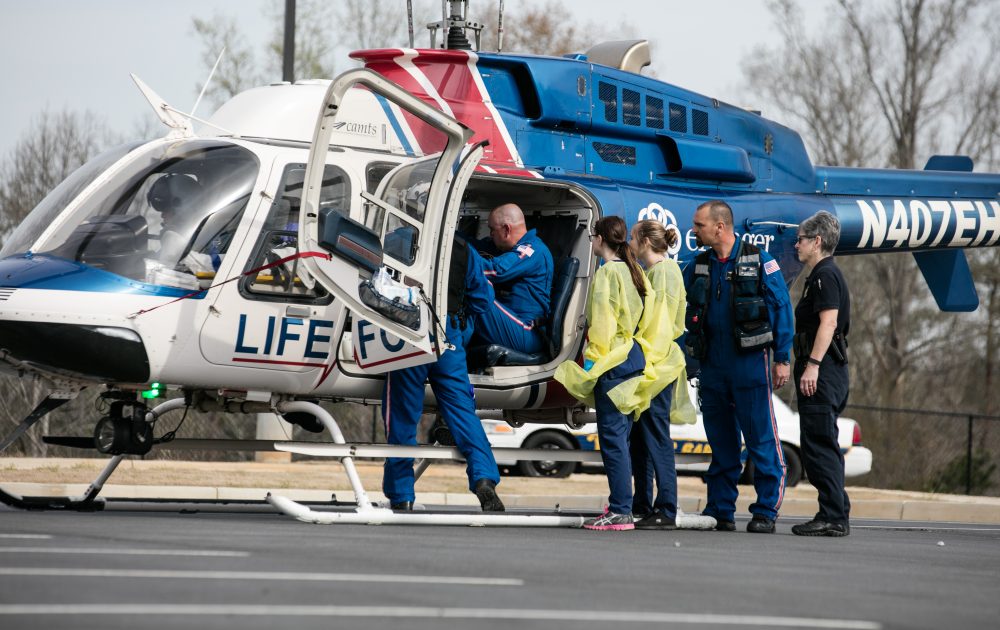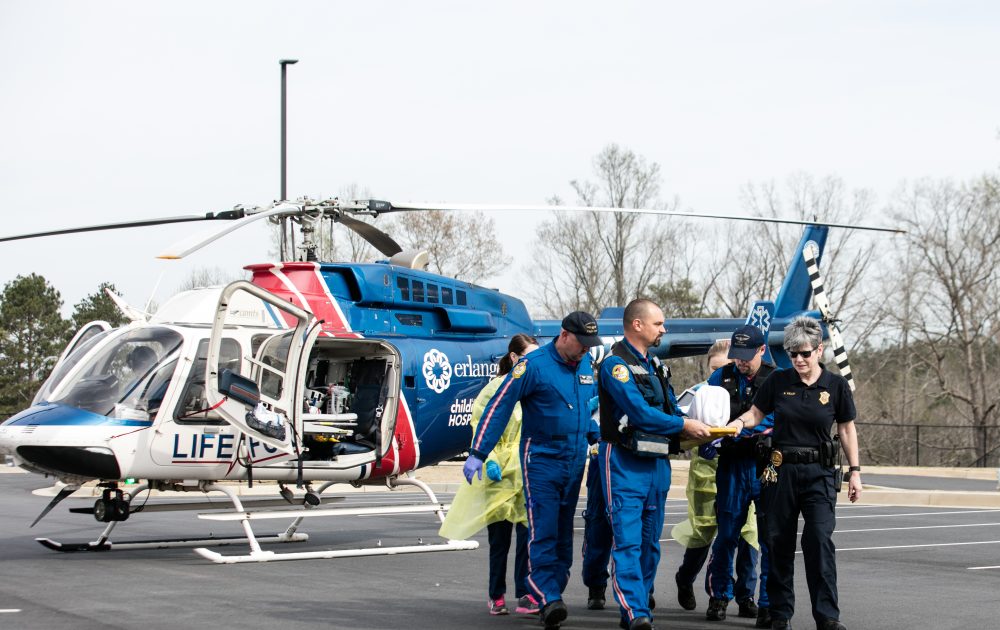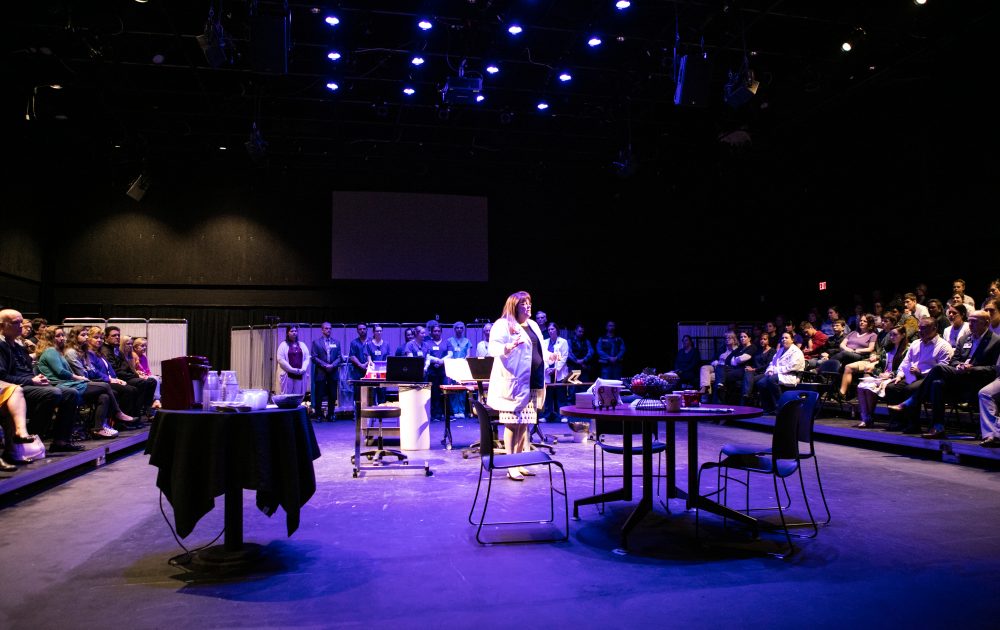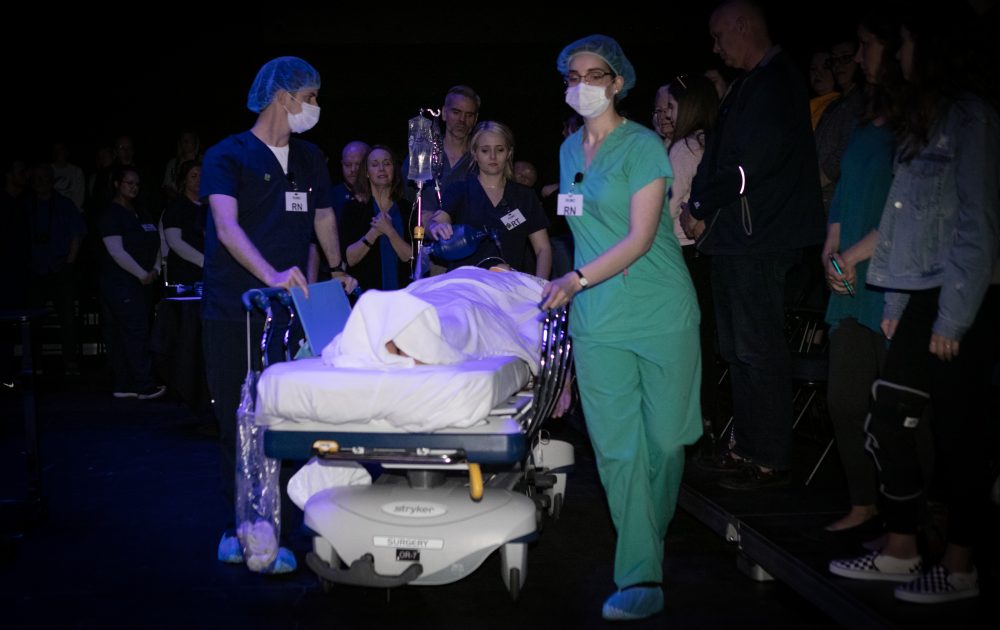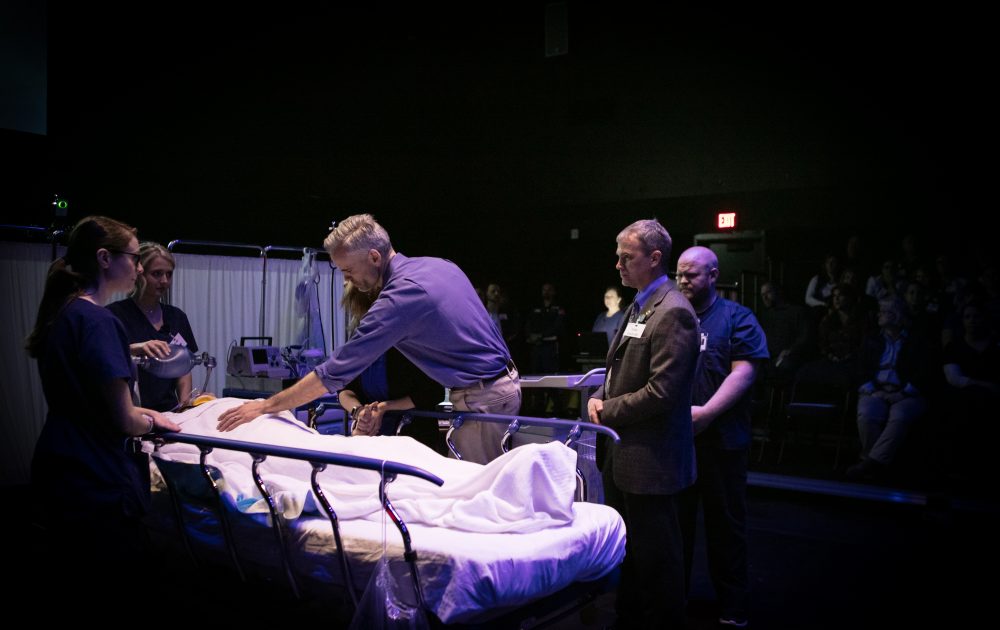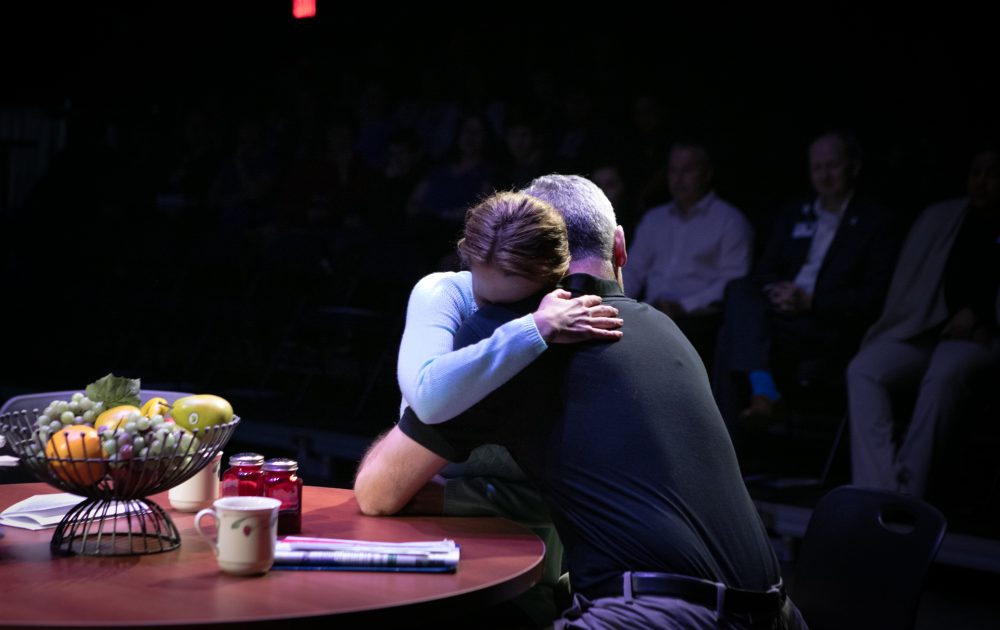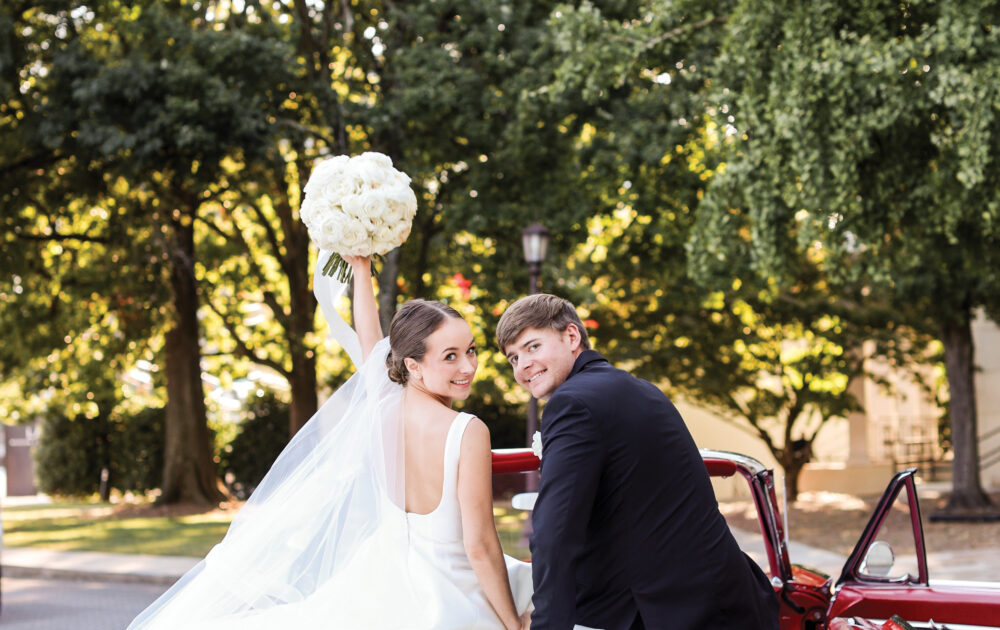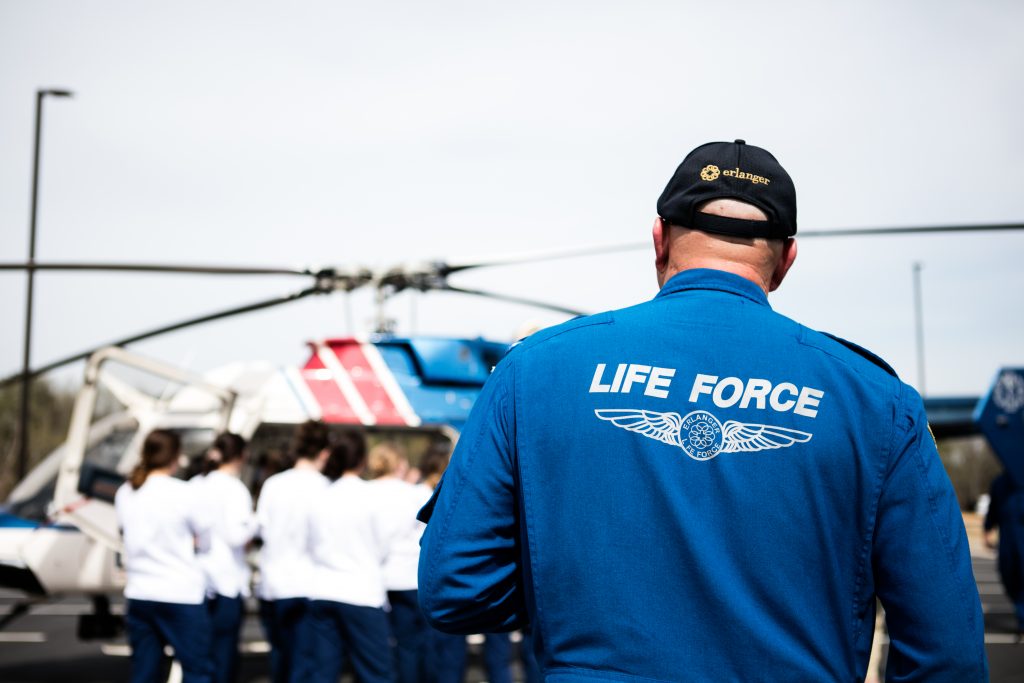
Photos Darleen Prem
Most of us have interacted with a nurse. You know them because you went to school with a nurse, your cousin is a nurse or you have been lucky enough to have your life saved by a nurse.
Nurses stop at crash sites to make sure everyone is safe, and they travel to provide home healthcare or hospice services. You see them at the pediatric office and at the schools your children attend. But something has happened to the nursing population in the last few years that is deeply troubling. There has been an immense shortage of nurses active in the profession.
Reinhardt University in Waleska, Georgia has an answer to a problem that has the potential to be devastating to the medical community. The organization’s goal is to make a difference in the nursing crisis in their community and beyond.
Dr. Glynis Blackard, RN, Dr. Jacob Harney and Erika Neldner want to let others know about Reinhardt’s nursing program. By implementing a path to putting more nurses in the field, they are poised to change the landscape of a career that is desperately needed.
Dr. Blackard is the Dean of the Cauble School of Nursing & Health Sciences. She has only been with Reinhardt since the inception of the program in 2016. However, the influence she has had on campus has been noticed. Her counterpart, Dr. Harney, the Dean of the School of Mathematics and Sciences and Associate Provost shares, “To pull off what she has pulled off in the amount of time we gave her is pretty remarkable. Under the leadership of Dr. Blackard the program has been a huge success in the Reinhardt community.”
“This December our first cohort will graduate,” Dr. Blackard continues. “We anticipate having around 22 nursing students who will pass the National Council Licensure Examination (NCLEX) to become a Registered Nurse (RN). They will be able to graduate, get a job and be able to impact the community as nurses in our area.”
But nurses impact the community in more ways than one. The advancement of modern medicine requires professionals who work in those fields be equipped with the knowledge to deal with specific challenges. The program at Reinhardt aims to accommodate the different needs in Cherokee County and the surrounding areas.
The construction of this program had to come from a problem-solving mindset if Reinhardt was ever going to make an impact. “The thought of a nursing program has been in existence in this part of Cherokee County for a while,” Dr. Blackard explains. “So, as the nursing shortage continued, the expansion of this county continued, and more people began to move here. It really began to come to fruition. When Dr. [Kina] Mallard, our President, was hired, the Board of Trustees told her that they wanted to start a school of nursing. That was really the beginning of it. Our Office of Institutional Research & Effectiveness researched all of the demographics and investigated what was needed. Once it was determined that this program would help to solve the shortage of nurses, they started looking for the Dean. That is why I joined the team in the fall of 2016, and we have been blessed. We have jumped through all the local, state and national hoops that all the accreditation and regulatory bodies require. It is important to note that we have done so in record time and with excellent ratings for our program.”
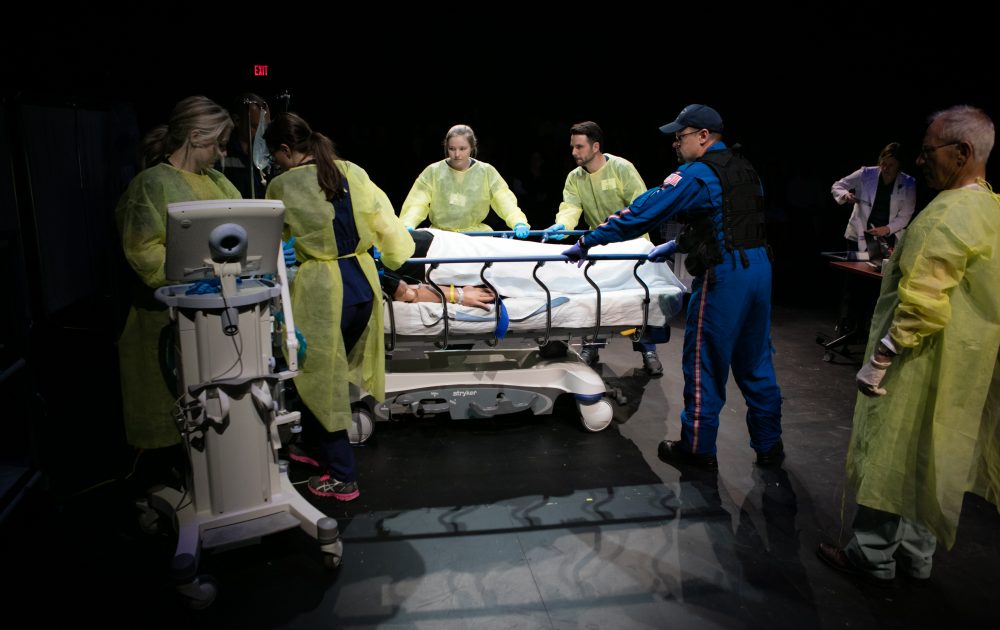
Dr. Blackard, Dr. Harney and Neldner agree that Reinhardt is a university focused on the students and not the numbers. Consequentially, they take a different approach when building the program, not only for the sake of success in the healthcare industry, but also so that the nurses themselves are fully equipped to handle their duties.
Reinhardt University is associated with the United Methodist Church. Dr. Blackard says, “…it guides us in our mission. We are interested in students thriving here at Reinhardt and that feeds into the Cauble School of Nursing & Health Sciences. Our mission criteria are very different than what you see in the community. We have a holistic admission process. We look at the student from all perspectives because we know that all sorts of students make quality nurses.”
The admissions committee looks at an applicant’s GPA, their science GPA and they have to pass the TEAS (Test of Essential Academic Skills) examination, an entry-level examination for nursing school. This process is pretty standard for nursing programs; however, The Cauble School takes it a few steps further. “We want to know about the person,” says Dr. Blackard. “and we want to know about their heart. We ask them to write an essay about why they want to be a nurse and their work is submitted to an admissions committee. We ask for references for the students in the community because we want to hear why people think this person would make a good nurse. We also ask for them to submit a resume. We are looking for altruistic opportunities, things that they have done unselfishly in the community. We are looking for volunteer work and it doesn’t have to be in the medical field. They could really love singing in the choir or caring for puppies at the animal shelter. The last part is an interview process where students get to sit in front of us and share their heart and tell us why they truly want to be a nurse and why they want to be a part of Reinhardt University and Cauble School of Nursing & Health Sciences.”
To pay that much attention to the character is the program’s way of letting every student who fits the profile of a nurse have the opportunity to enroll and will likely have an impact on the types of nurses who emerge from the school.
The curriculum is designed so that every semester the student is progressively interacting in a medical setting. This is due to the fact that every aspect of nursing has a foundation of basic skills. From the beginning, the students are in the hospitals. Dr. Blackard says of her students that, “they are out there impacting and changing lives for the better. It is common for our nursing students to interact and have the opportunity to save lives.
“Another part of their training comes in a very high-tech simulator,” Dr. Blackard continues. “It is called a High-Fidelity Simulation. Essentially, Reinhardt has the latest technology in medical simulation equipment. Their realistic simulator named Apollo can, “blink, cry, sweat, talk, it has breath sounds, heart tones and it has bowel sounds. It has pulses, it can bleed. We can put any devices we might use on a patient and IV (intravenous) or NG (nasogastric) tube in the simulator.”
There are multiple levels of use for the simulator, so every semester the students get to interact and train in a safe environment for the many trials’ nurses go through every day during a shift. Apollo lives in a hospital room and can train the students on everything from therapeutic conversations with a patient to actually saving someone’s life.
Dr. Blackard explains the best thing about the High-Fidelity Simulation. “The student goes in and has a scenario play out, whatever it is, and if an error occurs we can help them learn about it right there. No one is dying during this very important teaching moment. It happens in a lab setting. They get to watch themselves because we film these sessions. We get to hit a button and that patient is still alive. While we wish it were that simple in the real world, it is vital that the students know how to react in any situation. The simulator can be any gender and play out any number of scenarios.”
“We also have a birthing simulator,” adds Neldner. “We have a mother and a baby, so they get that midwifery experience of delivering a baby and then there is an actual simulator that is a baby. We conducted a simulation not that long ago where the baby came out and you could see that the baby was actually blue. Our students have to respond to that emergency, figure out what’s wrong and provide the proper care.”
The program also employs a child simulator for pediatric training. In every nursing class there is an opportunity to train with the simulators. This includes mental health classes. The students have to have the proper schooling in all areas before they can be prepared for the medical field.
Dr. Harney explains that the relationship between the Cauble School of Nursing & Health Sciences and the School of Math and Science is vital for the success of the students. He says, “Nursing is all health, it’s all science. It’s all natural science. It’s biology, chemistry and physics. But it’s also social sciences. Our students are dealing with people who are going through stress and people who are going through very difficult times in their lives. So, it is psychology, it is sociology and it is understanding the patient and where their truth is right now. What are their relationships with their family members? Do they come to visit? They experience all of that as part of their daily work. In order to be good at what they do, they need to be in tune with an individual’s psyche. This area of our program is a part of liberal arts education. We want them to critically think. We give them enough English, enough math, enough communications so that they can analyze things and think about things and communicate effectively. And then as they continue, the sciences get harder. All the natural science courses have three hour lectures and three hour labs. So, they are what we call very high contact hour majors. They have to hit the ground running right away. We want to prepare them in those two years and be able to continue a little bit with their general education courses. Then we delve completely into nursing. So, it’s a natural connection.”
Dr. Blackard says that, “we like to say that we are scientists who artistically apply the nursing process to the needs of the patient.”
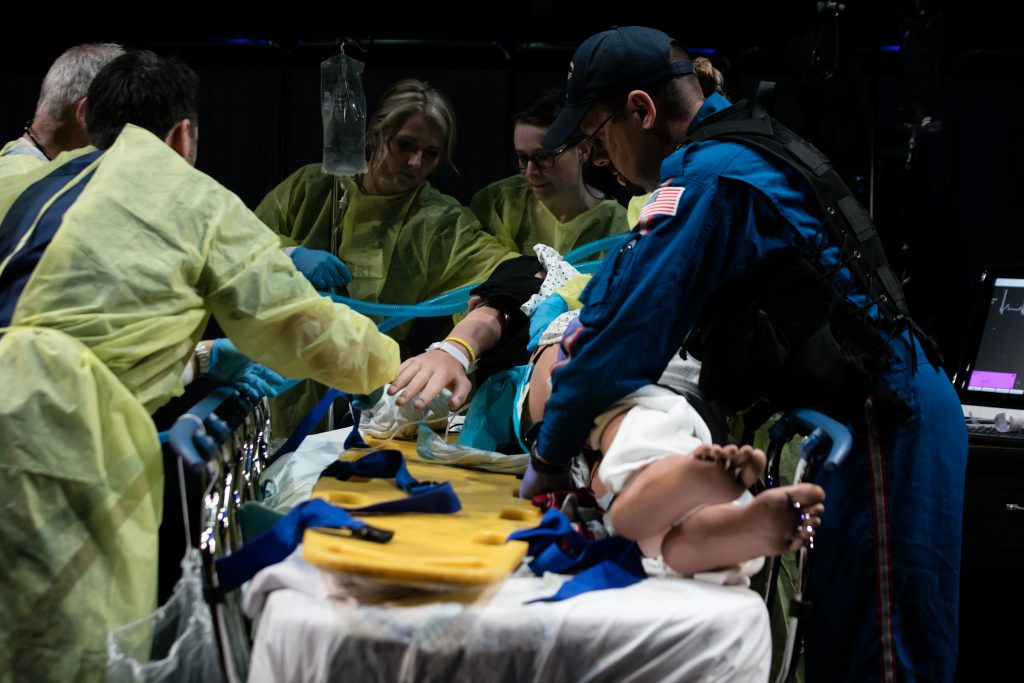 If you have been treated by a nurse who doesn’t seem to care, you know how difficult they can make already stressful situations. Nurses are needed to not only help heal the patients but also help them understand what’s happening and ease their minds. But if there is such a vital need for nurses, why is there a shortage?
If you have been treated by a nurse who doesn’t seem to care, you know how difficult they can make already stressful situations. Nurses are needed to not only help heal the patients but also help them understand what’s happening and ease their minds. But if there is such a vital need for nurses, why is there a shortage?
“Age,” Dr. Harney explains. “There is a large population of nurses who are towards the end of their career. That and the population. We are growing every day; Cherokee County is one of the fastest growing counties in the state.”
Nurses are retiring without replacements and the remaining nurses are severely out-numbered. Dr. Blackard also pointed out that the other issue is that there is a shortage of nursing faculty. Educators are the front of the pipeline; they are the gatekeepers of the profession. So, if there are not enough educators to teach nursing programs and instruct the numbers of students who wish to enroll in the nursing programs, it limits the number of qualified applicants an institution can serve. Without those to teach the skills necessary, then there won’t be a future for nurses at all.
There are four avenues for nursing: Practice, Leadership, Research and Education. Each area keeps the other three alive and functioning. People may not think about going into research or education as a nurse because as Harney points out, “when people make a decision that they want to go into the medical field, it’s because they generally want to work with people and they want to care for people. They don’t think of going into higher education to train nurses. They just don’t think about that. They want to grow up and be a nurse. But they can be a dean; they can get a Ph.D. and be a nurse.”
The hope is that the students will use this time of self-discovery to find what their niche in the healthcare system is and contribute to all facets of nursing.
Reinhardt University is reacting positively to the new nursing program. According to Lacey Satterfield, the Director of Admissions, “The nursing program has helped grow enrollment at Reinhardt. Additionally, I think the excitement around this program has created some good energy around Reinhardt as a whole and that has helped us get the word out about the great things that are happening on our campus.”
The nursing students are also reacting positively to the program and they also have had the opportunity to help shape it into what it needs to be. Students sit in on faculty meetings and give feedback. They help shape the program because it is just as much about them as it is the curriculum.
The community around Reinhardt has responded positively to the program, as well. “Quality nurses impact and change lives,” says Dr. Blackard. “We want support from the community. We have amazing support already but we need their continued support.”
Neldner adds, “There are a lot of opportunities to support Reinhardt and share. Tell people about Reinhardt; we are close. We have great fundraising opportunities; we have two golf tournaments a year and a 5K in Canton. There are many ways to share. We want people to know that we are a thriving university and we care about the student not just about filling the seats. We want students who want to learn and who want to be valued members of a community that contributes selflessly.”
So, find the nurses in your life. Speak with them and find out what you can do as a member of your community to help them. Encourage those who want to be nurses. And keep an eye on the Cauble School of Nursing & Health Sciences at Reinhardt University. It is doubtful that this is the last you will hear of their accomplishments.
For more information about Reinhardt University visit: www.reinhardt.edu.

